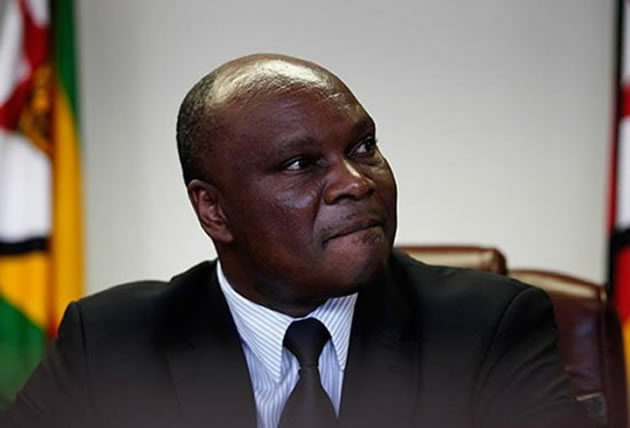Chiadzwa: Locating the real threat

 Nathaniel Manheru—
Nathaniel Manheru—
IT has been an eventful week in the mining sector. Government made good its threat to dismantle the founding mining regime in the diamond sector, a mining regime that did not yield any meaningful dividend to Zimbabwe, the real owner of the subsoil asset. But dismantling a mining regime is not quite the same thing as putting in place a new mining regime, as Minister Chidhakwa may have just learnt.
Indeed to ordinary Zimbabweans living within the environs of Chiadzwa — and for diamonds the neighbourhood of Chiadzwa can extend as far away as the adjacent territory of Mozambique, may extend as far afield as the whole country — the act of dismantling the old mining regime has amounted to a second manna, after the mayhem of uncontrolled diamond mining in mid-2000. Had it not been for a quick response from the authorities, the rush would have been uncontrollable. Still there are attempts to resurrect the lawlessness which created evanescent thousand-naires before the old capitalist adage of a fool and his money are soon parted.
Defending what they hate
The media has played up the implications of this action by Government to long-term investor view of Zimbabwe, investments in natural resources. And the Chinese have been singled out as the hardest hit, and therefore as the angriest. Surprising has been the sympathetic tone of the private media in respect of Chinese capital vis-a-vis Government’s latest action in the mining sector.
That section of the press hates Chinese capital, punts for western capital. Clearly the private press has been shedding crocodile tears, shedding them without scruples on whether or not the situation of friend or foe provides a setting for another round of attacking Government. We have to leave with this kind of opportunism until we develop a media conscious enough to grasp issues, more important, to identify and defend the national interest. And to know where to locate the quick of bilateral relations between their country Zimbabwe and a long term ally like China.
The role of State Enterprises
What is not known to that section of the media and to many Zimbabweans is that a key area of executive briefing when Xi Jinping visited was the thorny issue of Chinese private capital abroad and what needs to be done to ensure that part of Chinese national capital behaves abroad in ways that promote goals of bi-lateral relations. It was a frank discussion of allies, and one meant to put this strategic relationship on an even keel. And it did, conclusively. There is now a greater appreciation of the need to encourage investment capital which is conscious of historical relations and the need for mutually beneficent relations in the present and in future.
In the case of the Chinese State, a recognition that growing capital abroad means building acceptance of that capital by host societies, and aligning short-term gains of their capital to long term goals of host societies. And the two Governments now appreciate the need to locate their bilateral relations within the scope of State Enterprises which are accountable to both States for their daily actions. A good test of the new interaction in an old and enduring relationship shall be a major project in the communications sector. So, weep not child, the Sino-Zimbabwe relations are as strong as ever, readier than before, with very little hurtful likely from Chiadzwa.
Kimberley’s blind corner|
And as we move into the future, motives of that private press will become more and more apparent, clearly sidelining the Chinese from the whole diamond discourse, loudly centring western interests as they seek to take advantage of the change of Chiadzwa mining regime to further their regime change agenda. Herein lies the crux and warning to us Zimbabweans.
The initial interest of imperialism whose face was De Beers, was to surreptitiously carry out mining under the guise of mineral exploration. And as we all witnessed, that secretive mining was not an issue with the Kimberley Process which, anyhow, had been founded by De Beers to pre-empt real policing of the global diamond sector. It took the Zimbabwean Government — not the Kimberley Process — to expose this bloody corporate pillage, clearly revealing that the Kimberley eye only sees where De Beers interests are not at stake.
Change of tact
Once that level of subsoil brigandage had been foiled, with the Zimbabwean Government assuming direct interest and play, the strategy of imperialism morphed and relocated itself into the realm of the courts. A local company, ACR, and a local “owner”, Cranswick, was found and dressed with high-profile locals, to mount legal challenges to the take-over bid. It was a bruising fight, one which, fortunate enough, Zimbabwe won in the end.
Dressing local effigies
Still the versatile imperialism dropped the legal plank to don itself with the garb of human rights. A phrase – blood diamonds – developed in West Africa, was dusted prim for redeployment to our part of the earth. Government had deployed the security services to avert the drift to a Sierra Leone kind of lawlessness that would have made the notion of bloody diamonds applicable.
Instead of being congratulated, the same Government got judged and condemned on the shifty grounds of human rights in the process of re-establishing law and order, got judged by countries which had in fact deployed in West Africa to restore order in diamond fields there. As always, a native local — one Maguwu — was found to be the black effigy on which to place and articulate the human rights grievance in order to give it local colouring and a patina of veracity.
For a long time in so short a time, a hitherto unknown Maguwu assumed world fame, with his organisation defying laws of natural growth to become a child-giant overnight. Clearly powerful political interests are the best greenhouses organisationally.
Global regimes to the rescue
Enter the KPCS process. With the Maguwus and then MDC-T’s Mudiwas being used to mine synthetic human rights grievances for the KPCS process, the whole action migrated from the national vista to a global one where big imperial countries were able to dictate the pace of events. And the effort was to have Zimbabwe’s diamonds declared bloody so as to get the country to starve with its abundant resources, the same way it is starving with abundant ivory in its vaults, thanks to CITES. That direction of action, if anything, reminded us yet again how international governance systems amount to yet another string on the bow of international capital in its dealings with smaller, well-endowed Third World states.
And for several years Zimbabwe deflected many attacks mounted through KPCS, deflected them with solid support from producer nations like South Africa, Namibia, Angola, Botswana and DRC in our region; and with solid internationalist support from countries like Russia and Belgium. Of course in all cases there was a bit of self-interest which is always the basis of enduring global solidarity that is beyond diplomatic niceties.
We triumphed against all odds and in reverse contraction and with the same amazing speed, Maguwu and his lobby group shrank to nothingness in record time. The greenhouse had become an oven. Interestingly, Sure Mudiwa previously with MDC-T, is now being cultivated for the Zimbabwe People First. How history is a real gyroscope!
Back to local politics again
But not suddenly, and not soon enough. There were attempts to turn Chiadzwa into a political grievance for local politics, ahead of 2013. Chiadzwa became a rallying point for the opposition — now in the Government of National Unity — and exploiting rules of public administration and public finance to probe for international capital. The traction proved too weak to colour the 2013 elections which the opposition lost dismally. Still, the leadership was aware of serious weakness within the whole mining regime, and on how Government interest was represented and minded. For those in the know, a raft of reforms was proposed for the mining sector as part of Zim-Asset and as part of the tasks of the new Cabinet.
Change management imperative
Those reforms are now being implemented and the tricky question of change management has come to the fore this week. How to out the old miners so given to easy, alluvial mining, but without collapsing KPCS-approved safety controls, that is the question. A question much larger than for the Mining ministry. A national question in the double sense of sealing national security and moving the diamond mining sector forward, beyond short-term, high-tech alluvial panning yielding dubious gains for our Nation.
Diamonds are a key resource requiring key investments, especially when it comes to conglomerates. Diamonds are potentially a potent destabilisation force unless the minefields are well secured, proceeds well accounted for, starting with communities hosting those minefields. Diamonds are forever a re-entry point for western destabilisation calculations, the more so now when they are running out of “crimes” against which to pillory Zimbabwe.
Challenging symbol of global capital
The real crime Zimbabwe has committed is against a powerful, private diamond mining conglomerate called De Beers. That has never happened in the annals of mining history, including from the days of its founding by one Cecil Rhodes.
De Beers is much more than a diamond company; it is Rhodes’s company. Zimbabwe has made a very loud, jarring statement to the world of capital. And this not as a freak, but as a logical deepening of its challenge to rapacious racial capital oversees from the land reforms.
The sentinels of capital are aghast, watching with consternation as Mugabe makes an emphatic case for nationals, which is to make an equally emphatic case against global capital, the traditional responsibility of the neo-colonial African and Third World state.
We need to view things from that grave angle. Things do not have to get worse, worst, at Chiadzwa. A pretext only has to be provided. Icho!










Comments